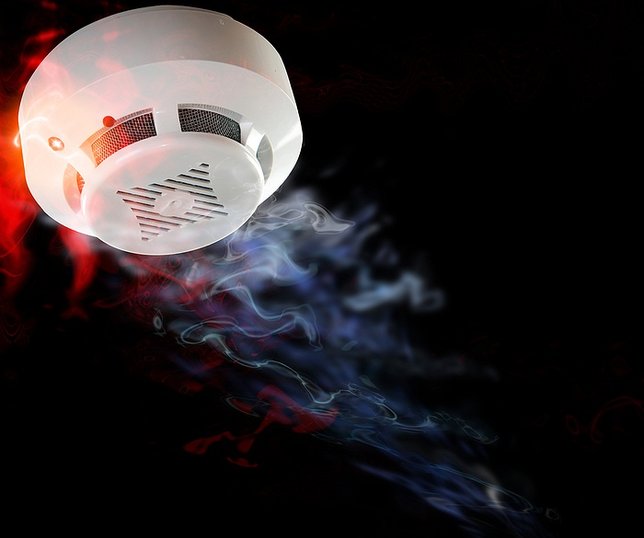(March 6, 2023 NEW YORK) On Sunday, March 12th (Daylight Saving Time), New Yorkers will set their clocks forward one hour. The Firefighters Association of the State of New York (FASNY) is urging everyone to check their smoke alarms and carbon monoxide detectors at that time. Homeowners with alarms that have sealed, non-removable batteries should test the alarms to see if they are functional and check their expiration dates. Alarms equipped with removable batteries should have their batteries replaced and then test the alarm.
New York State currently leads the nation in home fire deaths, with 36 deaths in the first two months of 2023. In an emergency, working smoke detectors are a resident’s first line of defense and can give people critical time to escape. According to the National Fire Prevention Association (NFPA) three of every five home fire deaths occur in homes without working smoke alarms or in homes lacking smoke alarms.
“The additional time a smoke or CO alarm provides can be the difference between life and death. says FASNY President Edward Tase, Jr. “We encourage everyone to check their smoke and CO alarms monthly to ensure that they are functioning properly. In addition, fire sprinkler systems are proven to save lives and these systems should be installed when possible.”
New York State has banned the sale of smoke alarms with removable batteries. This was an important step to increase public safety, but individuals must also be diligent about installing these more user-friendly alarms and ensuring that they are in working order.
There is legislation awaiting introduction for this session that will allow home life safety products, like smoke detectors, to be tax-exempt. This legislation also includes fire extinguishers, heat, and carbon monoxide alarms purchased for residential use. These devices can mean the difference between life and death, and FASNY supports the elimination of any economic barrier in obtaining these products. The Senate and Assembly should move this legislation without delay.
Smoke Alarm Tips from FASNY and the National Fire Protection Association (NFPA):
- Test alarms at least once a month by using the test button.
- If you have an alarm with a removable battery, be sure to check the batteries every six months, and change the batteries every year. If a battery is starting to lose its power, the unit will usually chirp to warn you. Do NOT disable the unit.
- Vacuum or blow out any dust that might accumulate in the unit.
- NEVER borrow a battery from an alarm to use somewhere else.
- NEVER paint a smoke or CO alarm.
- Install at least one smoke alarm on every floor of your home, including the basement, and in, or near each sleeping area.
- Smoke alarms should not be installed near a window because drafts could interfere with their operation.
- Families should also develop and practice a home fire escape plan.
- Always follow the manufacturer's instructions for testing smoke alarms and replacing the batteries.
For more information on smoke alarms, carbon monoxide alarms, and other information on fire safety and prevention, visit www.fasny.com and www.nfpa.org.










